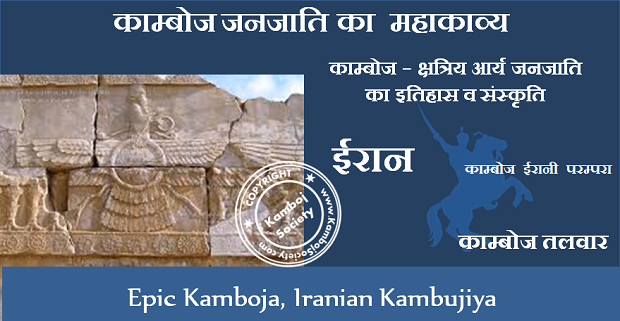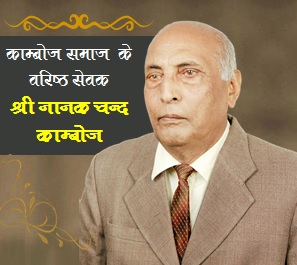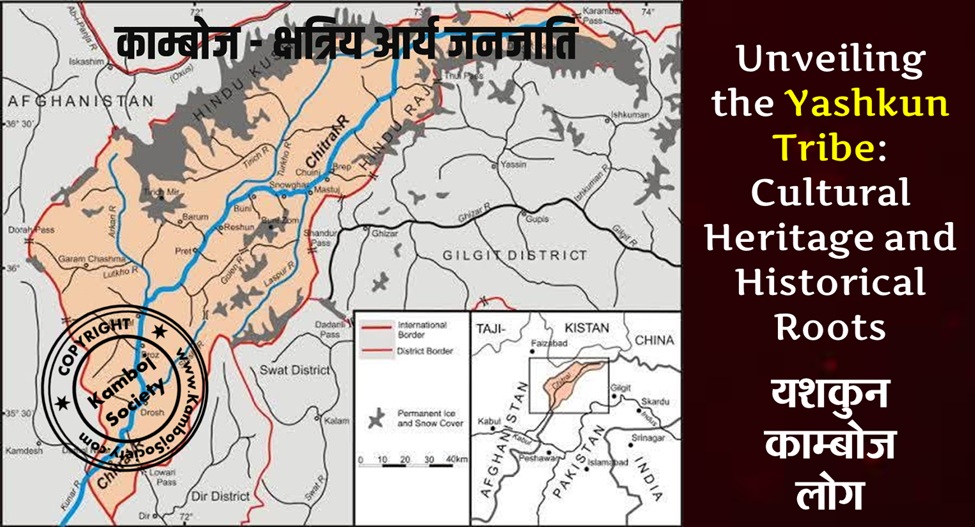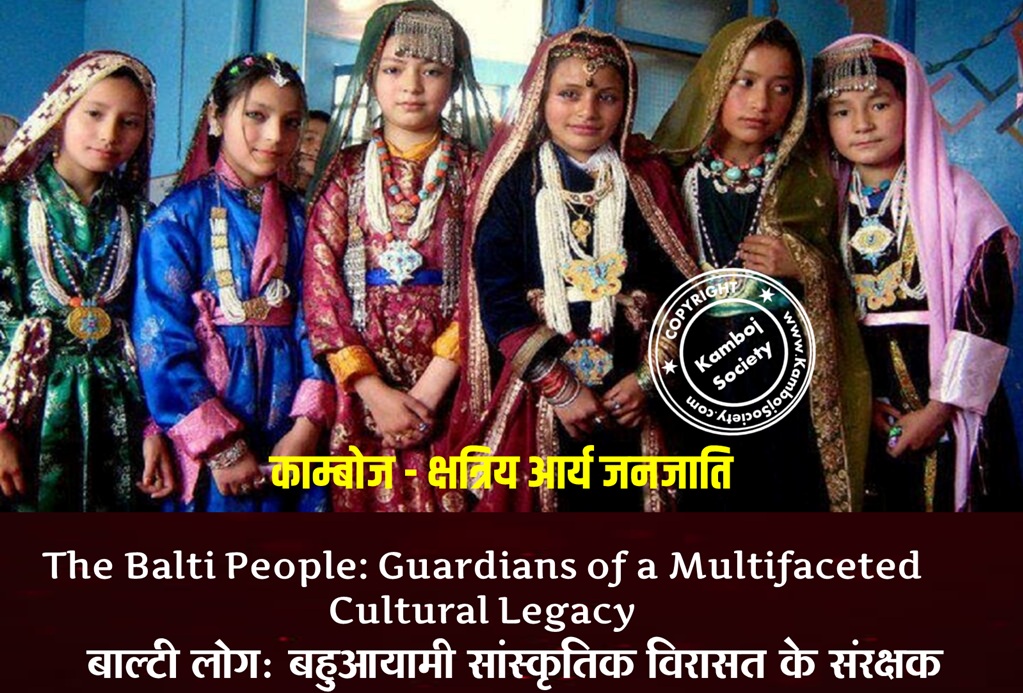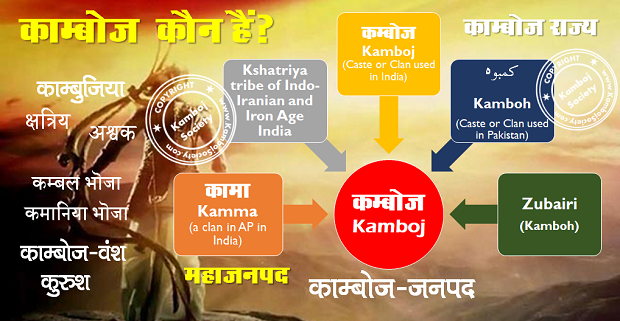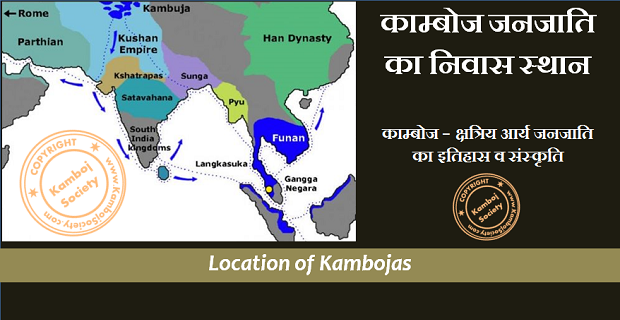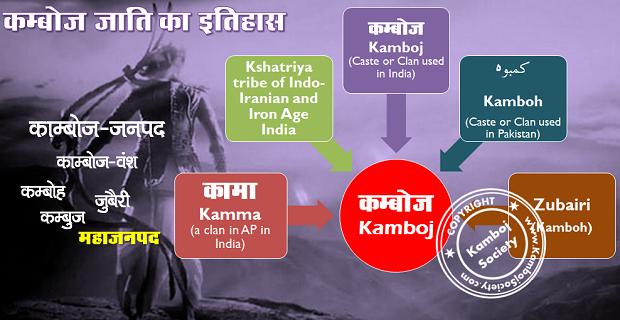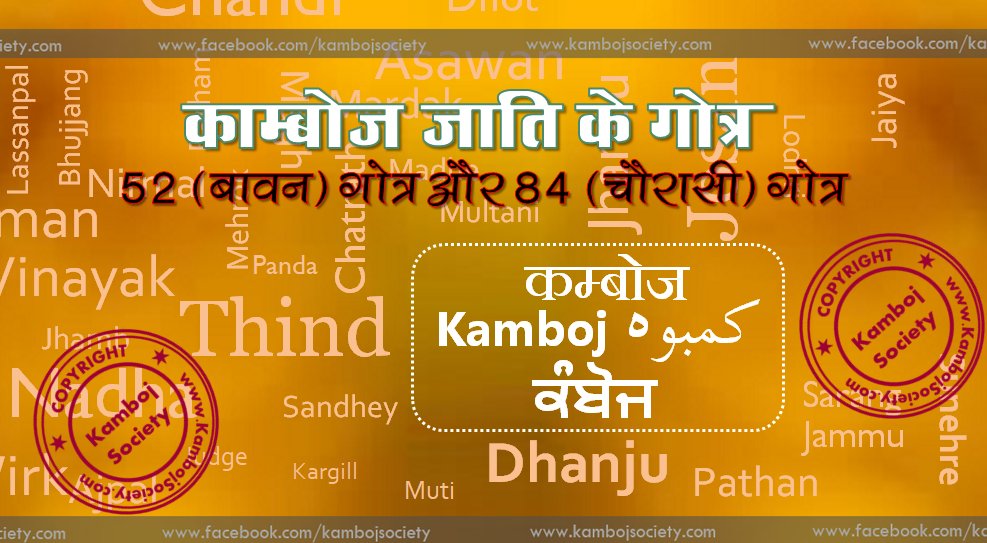Epic poetry|Epic Mahabharata refers to a king or warrior whom it calls Kamboja. The name appears in the long list of important monarchs and other celebrated personages of remote Ancient history|antiquity all connected with the tradition of Daivi Khadga or Divine sword referenced in the great epic.
Inheritance of sword
The legend of Daivi Khadga or Divine Sword traces the history of creation and the inheritance of the prized sword from its origin down to the age of Pandavas. The legend is detailed in Shantiparva section of the great epic [https://www.ibiblio.org/sripedia/ebooks/mb/m12/m12a165.htm].Kosala vs Kamboja rivalry and the sword
Mahabharata attests that after several generations of changing hands from one line of ancient kings to another, the prized sword fell into the hands of righteous king Ailavila from whom it went to king Dhundumara, a celebrated king of Kosala (real name Kuvalashava):Kosala vs Kamboja rivalry: Puranic evidence
Numerous Puranic literature also amply attests that the Haihayas, Kambojas, Sakas, Pahlavas etc had fought two wars with the Ikshvaku kings of Kosala-- one with Bahu and the second with his son Sagara. This Puranic evidence clearly shows that the relations between the Kambojas and the Kosalas have not been good (Harivamsa 14.1-19)Antiquity of the sword legend
The sword legend of Mahabharata points to very remote antiquity since king Kuvalashava aka Dhundhumara, the contemporary of this Kamboja warrior, has been placed at twelfth generation down from Swayambhuva Manu of the Hindu traditions (Ancient Indian Historical Traditions, pp 114 ff, Dr P. E. Pargiter).The Epic Kamboja is some earlier Iranian Kambaujiya
It is now generally accepted that the royal name Kambujiya (or Kambujiya|Kamboujiya) of ancient Persian empire|Persian records is reflected in the Sanskrit Kamboja or Greek language|Greek Cambyses. The same name appears as C-n-b-n-z-y in Aramaic, Kambuzia in Assyrian, Kambythet in Egyptian language|Egyptian, Kam-bu-zi-ia in Akkadian, Kan-bu-zi-ia in Elamite, and Kanpuziya in Susian languages. It appears to be very popular name among ancient Iranians. It is therefore, highly likely that the legendary warrior Kamboja referenced in Shantiparava section of the Mahabharata was some very earlier Kambaujiya from the royal lineage of ancient Iranian Aryans, and may have given his Kamboja/Kambaujiya name to the clan he belonged to. This ancient Kamboja/Kambaujiya warrior and ruler appears to have preceded the three Kambujiyas/Kambaujiyas (Cambyses) who find references in the old Persian language|Persian inscriptions.See also
- Kambojas
- Cambyses
- Mahabharata Sword
- Language and ethnicity of Kambojas
- Chandravarma Kamboja
- Kamatha Kamboja
- Sudakshina Kamboja
- Prapaksha Kamboja
External link
- Sword Legend [https://www.ibiblio.org/sripedia/ebooks/mb/m12/m12a165.htm]
References
- Mahabharata
- Puranas
- Yasaka's Nurukata
- Panini's Ashtadhyayi.


